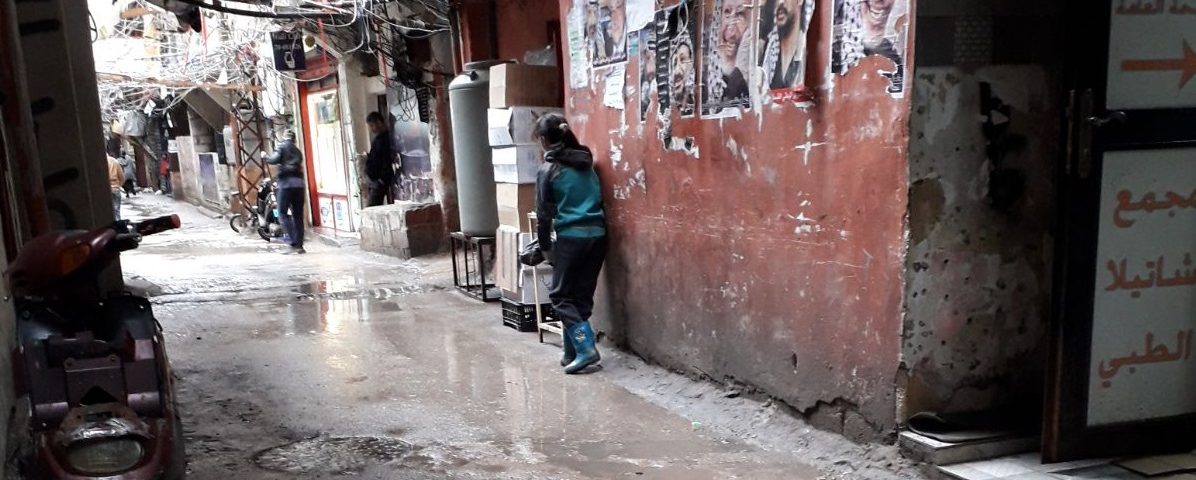- Mediterranean Hope - Federazione delle chiese evangeliche in Italia
- mh@fcei.it
Syria and the right to health / 3. The war is not over, mobilization is needed
LEGGI IN ITALIANO
Third and final part of the editorial in three episodes of Luciano Griso, doctor in charge for the Medical Hope Project. War, sanctions, instability, insecurity, CORONAVIRUS: the threats facing the Syrian population require immediate intervention by the international community and the churches
Rome (NEV), July 20, 2020 – The final part of the editorial in three episodes by Luciano Griso, doctor in charge of Medical Hope (who in the context of Mediterranean Hope, refugee and migrant program of the Federation of Protestant Churches in Italy – FCEI -, provides health care to migrants) addresses the issue of international responsibilities and presents some proposals. Over the Syrian situation, made further complex by the war, are also looming the threats of COVID-19. Luciano Griso, after an “overview” on the sanctions that have affected the Syrian population for years, analyzed the data and themes of the article published by the authoritative medical journal The Lancet, which explores the socio-health situation in Syria and the risks of embargo also placed by Europe.
In this part, Griso calls on a wide mobilization of the international community and of the churches, in the light of the threats, the instability and the insecurity that Syria and its population, especially its weakest and most vulnerable groups, have endured for many years. Human rights, including the right to health, are also under attack.
The CORONAVIRUS pandemic, all too quickly outlined, enters this situation. If the contrast actions made evident the fragility of the health systems of western countries (in terms of scarcity of human resources, adequate structures, rapid response to the emergency), even more so these deficiencies manifest themselves explosively in the countries of the Middle East, where wars and terrorism have been feeding each other for at least twenty years.
The available data on the incidence of the pandemic in Syria are fragmented. The number of infections and deaths is said to be quite low, but the surveillance system is completely inadequate. In Damascus no more than one hundred tests are performed per day, and only for symptomatic people. In areas beyond the regime’s control, monitoring possibilities are almost absent due to social / military instability and the consequent inaccessibility of many regions: more than two million people live in areas (North-western, Idlib) controlled by jihadist / pro-Turkish forces, while Kurds and Americans control large areas in the Northeast. Refugee camps in these areas are not reachable and are at risk of a wide spread of the virus, especially in the feared second wave in autumn.
In areas under the regime’s control, economic collapse and the high rate of inflation translate into the fact that 83% of the population lives in poverty (UN data), many, and in particular children, feed only once per day, with an inadequate diet compared to the needs, 70% do not have access to safe water for the destruction of infrastructures, the reduced availability of basic necessities, disinfectants and personal protective equipment is now the norm. Furthermore, the lock-down heavily hit the poorest and most vulnerable people, those employed in the informal economy, in small shops, in daily jobs.
In this context seriously compromised from the socio-economic point of view, according to the World Health Organization, it is not a question of knowing “if” the COVID-19 will hit, but “when” it will hit. If we take into account that Syria has 359 intensive care beds across the Country, it is easy to realize how fragile the response capacity to the pandemic is.
This situation would require widespread mobilization by the international community to bring relief to one of the most unfortunate populations in Eurasia. Just think that an entire generation of Syrians, the younger one, does not know what peace is, lives in precariousness and insecurity, without education and without hope, with psychological damage that is manifesting itself over time and that will surely negatively affect the possibility to build, when the time comes (but will there ever be?), a society that allows a “civil” coexistence among its components.
It is a call, that of The Lancet, which also challenges us and our Churches, which requires us to oppose the widespread idea, in public opinion and in the media, that the war in Syria is now in its final stages and does not represent any more that emergency faced in the past years. This is not the case, as it can be seen from the previous summary notes. The war continues, the situation is increasingly difficult; we verify this, as Mediterranean Hope, in our activity in Lebanon, in our work with Syrian refugees whose despair and precariousness increase day after day because of the impossibility of both returning to Syria – because houses and villages are destroyed, because there is no job due to the catastrophic economic situation, because young people would face arrest as considered deserters – and remaining in Lebanon, where, due to the collapse of the economy and of job opportunities, they are seen as those who steal bread and work from the Lebanese (it is the fate of the refugees, wherever they are).
It is to this task that the writers of the appeal published by The Lancet call. Let’s not be satisfied with what we are already doing, the goal is certainly beyond that.





